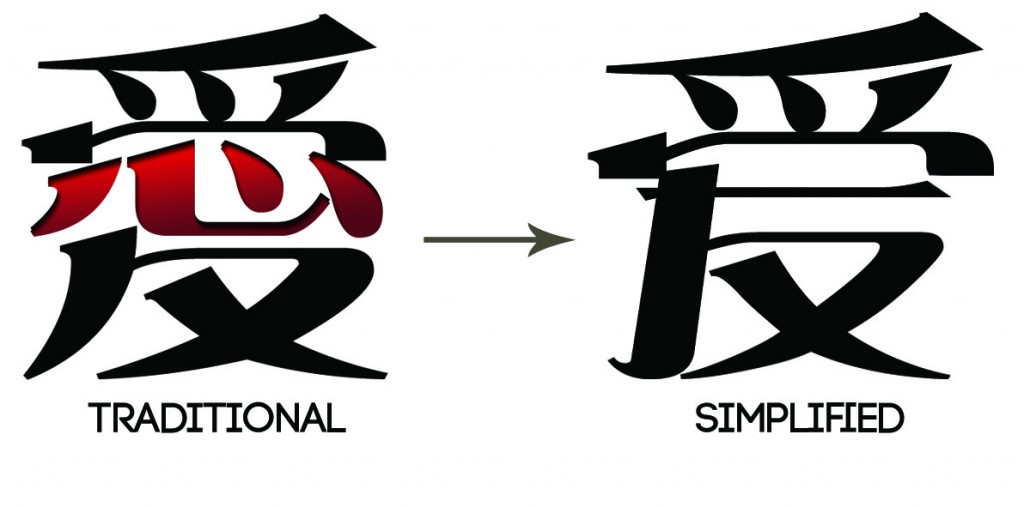Purists fear simplified Chinese characters will replace traditional characters in Hong Kong
Reporters: Rene Lam, Natalie Cheng
Graduate student Wang Tiexin uses traditional Chinese characters in his reply to Varsity’s interview request through text message. He also uses traditional script in many of his posts on social networking sites, yet in person, his soft Mandarin accent hints he may be from Taiwan.
In fact, Wang, who is studying at the Chinese University of Hong Kong (CUHK), is from Chengdu in Sichuan province and learned to write traditional Chinese by reading subtitles and lyrics from popular songs sung by Hong Kong and Taiwanese artists.
Although simplified Chinese is the official script in Wang’s homeland, he prefers traditional Chinese and believes that the traditional form “makes more sense”.
“The simplified form of ‘love’, is without ‘heart’,” says Wang enthusiastically while writing the Chinese character “ai” in the air with his finger. “In traditional Chinese, there is a ‘heart’ in the middle of the character and it means something.”

Wang believes traditional Chinese characters are not only structurally beautiful, but educational as well because of their intrinsic meaning. And since he regards learning traditional Chinese an “acculturation”, an integral part of Chinese culture, he is appalled that some of his Chinese friends cannot read traditional characters at all.
He was even more dismayed when he heard that Hong Kong had started using simplified Chinese characters for official notices. Wang believes different regions of China should have their own culture and retain features unique to their region. He fears the use of simplified characters is a sign that Hong Kong is becoming more like the mainland.
Reports in December last year about an official sign written in simplified Chinese in the New Territories sparked anger and fear in the Hong Kong community and beyond. Online groups and forums supporting the traditional Chinese writing system sprang up, igniting debate over the official language of Hong Kong.







































